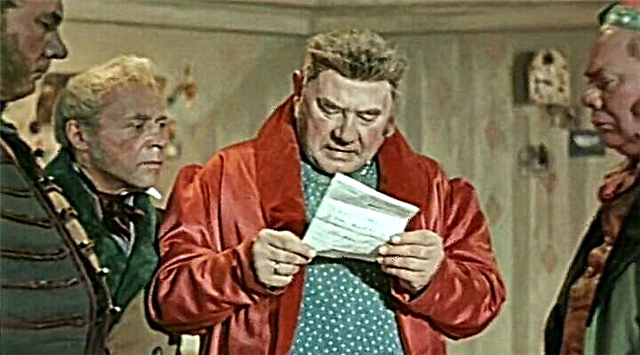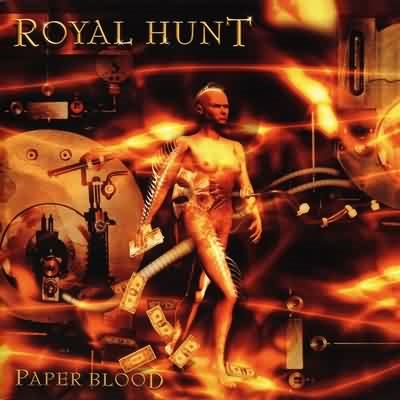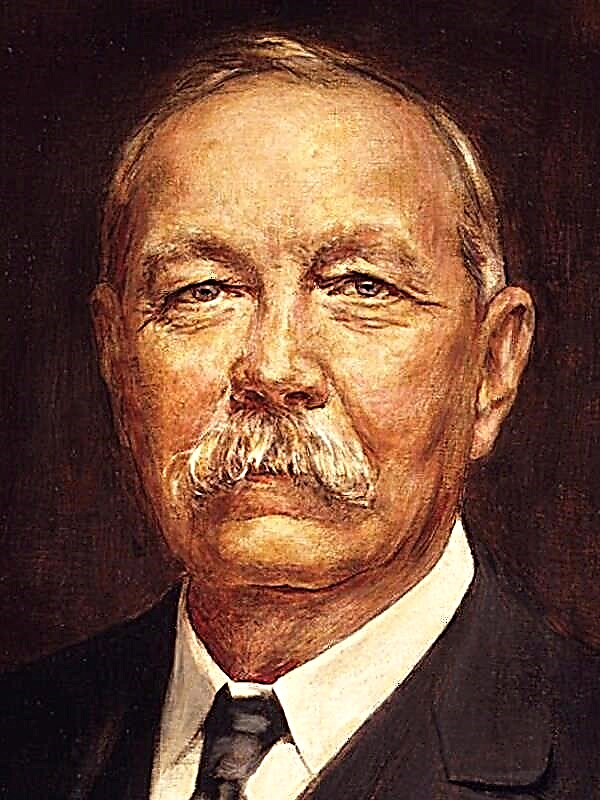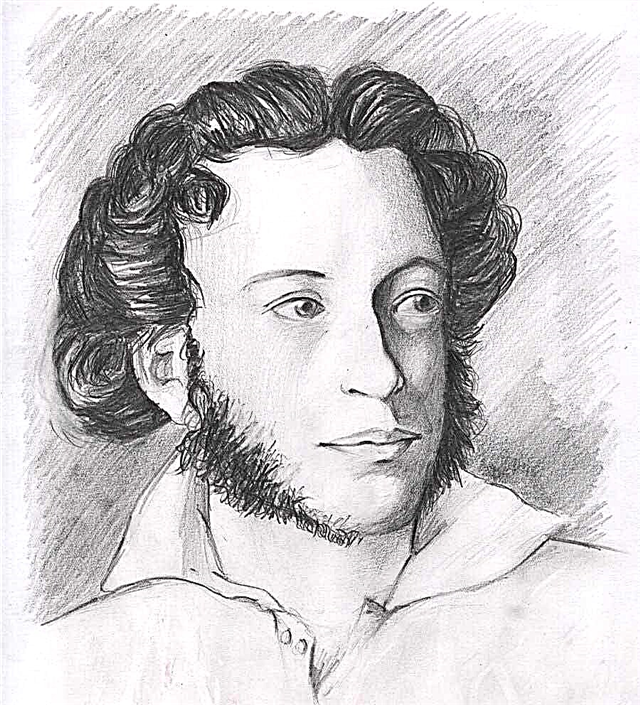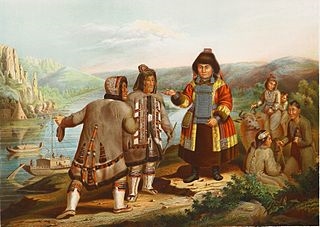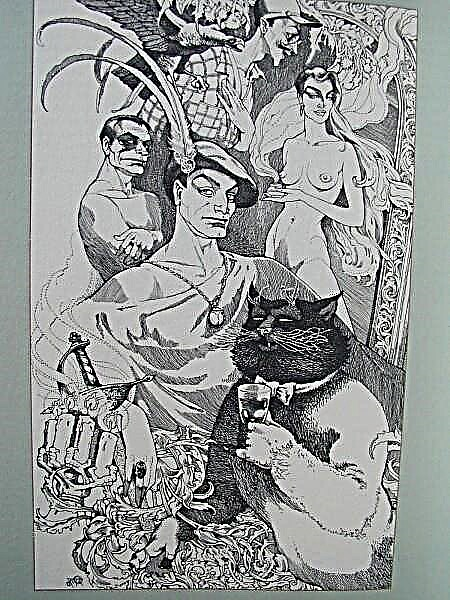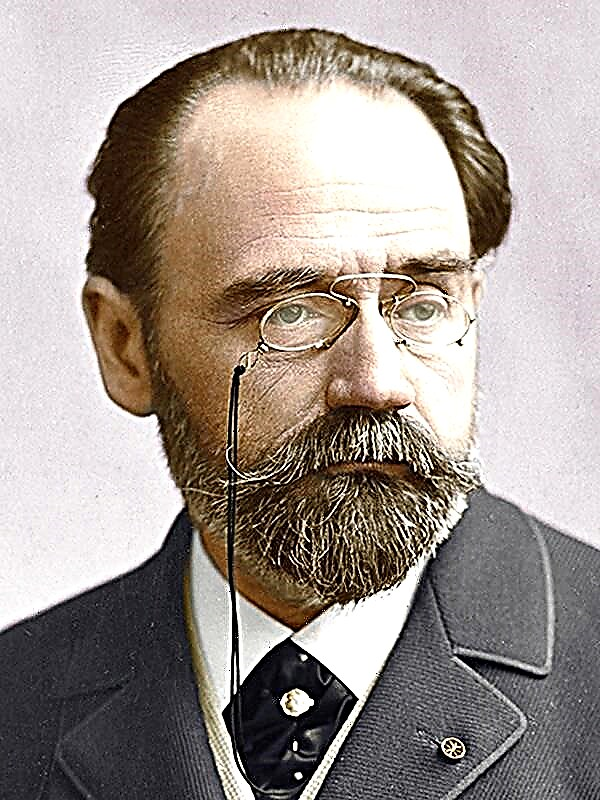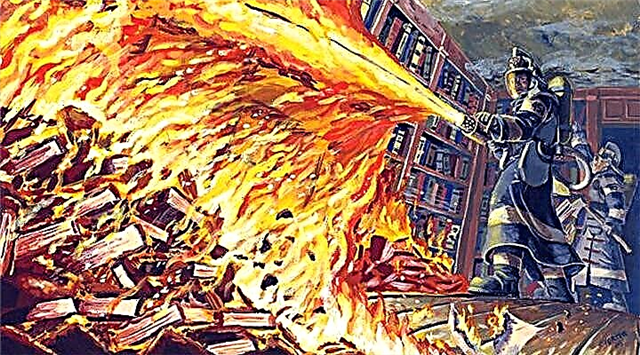The action takes place in Colombia in 1956, when a fierce struggle between political groups took place in the country and an atmosphere of violence and terror reigned.
On the outskirts of a small provincial town, in a house covered with palm leaves with peeling walls, an old married couple fell into poverty. Colonel is seventy-five years old; he is a "tightly screwed up dry man with eyes full of life." On a rainy October morning, the colonel feels worse than ever: lightheadedness, weakness, pain in his stomach, "as if wild animals were gnawing at the insides." And the wife had an asthma attack at night. The ringing of the bell reminds that there is a funeral in the town today. The poor musician, the same age as their son Agustin, is buried. The colonel puts on a black cloth suit, which he wore only in exceptional cases after marriage, patent leather shoes are the only ones that remained intact. You look, dressed up, your wife grumbles, as if something unusual had happened. Of course, the unusual, counters the colonel, for so many years the first man died his death.
The colonel goes to the deceased's house to express his condolences to his mother, and then, along with the others, accompanies the coffin in the cemetery. Don Sabas, the godfather of his deceased son, invites the colonel to hide from the rain under his umbrella. Kum is one of the former associates of the colonel, the only party leader who escaped political persecution and continues to live in the town. The half-undressed alcald from the balcony of the municipality requires that the funeral procession turn onto another street, it is forbidden to approach the barracks, they have a state of siege.
Returning from the cemetery, the colonel, overcoming malaise, takes care of the rooster, which remained from his son - a lover of cockfights. Nine months ago, Agustin was killed for distributing leaflets, riddled with bullets during a cockfight. What to feed a rooster, the old man puzzles, because he and his wife have nothing to eat. But we must hold out until January, when the fighting begins. The rooster is not only the memory of the deceased son, but also the hope of the possibility of a solid win.
On Friday, as usual, the colonel leaves for the port to meet the mail boat. He does this regularly for fifteen years, each time experiencing excitement, oppressive, like fear. And again, he has no correspondence. The doctor who received the mail gives him fresh newspapers for a while, but it is difficult to read anything between the lines left by the censorship.
The cracked bronze of the bells sounds again, but now it's the censorship bells. Father Angel, who receives an annotated index by mail, blows a bell to inform the flock about the moral level of films in the local cinema, and then spies on parishioners. Visiting sick old people, the doctor gives the colonel leaflets - illegal summaries of the latest events printed on the mimeograph, the Colonel goes to the tailor shop where his son worked to hand over the leaflets to Agustin's friends. This place is his only refuge. Since his party comrades were killed or deported from the city, he has felt oppressive loneliness. And on sleepless nights, he is overcome by memories of the civil war ended fifty-six years ago, in which his youth passed.
There is nothing to eat in the house. After the death of his son, the old men sold the sewing machine and lived on the money earned for it, but there were no buyers for the broken wall clock and picture. So that the neighbors would not have guessed about their plight, the wife cooks stones in a pot. Most of all in these circumstances, the colonel cares about the cock. You can’t let Agustin’s friends save money to put on a cock.
Next Friday is coming, and again, there is nothing in the arrived mail for the colonel. Reading the newspapers proposed by the doctor is annoying: since censorship was introduced, they write only about Europe, it is impossible to find out what is happening in one's own country.
Colonel feels cheated. Nineteen years ago, Congress passed a pension law to veterans. Then he, a participant in the civil war, began a process that was to prove that this law applies to him. The process lasted eight years. It took another six years for the colonel to be included in the list of veterans. This was reported in the last letter he received. And since then - no news.
The wife insists that the colonel change his lawyer. What a joy if they put the money in their coffin, like the Indians. The lawyer persuades the client not to lose hope, bureaucratic red tape usually lasts for years. In addition, during this time, seven presidents changed and each changed the cabinet at least ten times, each minister changed his officials at least a hundred times. He can still be considered lucky, because he received his rank at the age of twenty; age, but his older fighting friends and died, without waiting for a solution to their issue. But the colonel takes the power of attorney. He intends to file the application again, even if for this he will have to collect all the documents again and wait another hundred years. In old papers, he searches for a two-year-old newspaper clipping about the law office, which promised active assistance in arranging a pension for war veterans, and writes a letter there: maybe the issue will be resolved before the mortgage term for the house expires, and before that two more years.
November is a difficult month for both old people, their illnesses worsen. The colonel is supported by the hope that a letter is about to arrive. The wife demands to get rid of the rooster, but the old man stubbornly stands his ground: by all means, you must wait for the start of the fighting. Wanting to help, the companions of the son take care of feeding the rooster. Sometimes the colonel’s wife sprinkles maize with him in order to cook at least a little porridge for himself and her husband.
One Friday, a colonel who came to meet a mail boat waits for rain in the office of Don Sabas. Kum insistently advises to sell a rooster; nine hundred pesos can be obtained for him. The thought of money that would help hold out for another three years does not leave the colonel. His wife, who was trying to borrow money from Father Angel for wedding rings and got a turn from the gate, grabs this opportunity. For several days, the colonel is mentally preparing for a conversation with Don Sabas. It seems to him to sell a rooster blasphemy, it is like selling the memory of a son or himself. And yet he is forced to go to the godfather, but he is now talking only about four hundred pesos. Don Sabas, who loves to profit from someone else’s good, says a doctor who has learned about the upcoming deal, because he brought the alcalde to opponents of the regime, and then bought up the property of his party comrades who were expelled from the city for nothing. Colonel decides not to sell a cock.
In the billiard room, where he watches the game of roulette, a police raid takes place, and in his pocket there are leaflets received from friends of Agustin. For the first time, the Colonel finds himself face to face with the man who killed his son, but, having shown composure, gets out of the cordon.
The chill December nights of the Colonel warm memories of fighting youth. He hopes to get a letter with the nearest boat. He is supported by the fact that training fights have already begun and his cock has no equal. It remains to be tolerated for forty-five days, the colonel convinces the despairing wife, and to her question that they will eat all this time, resolutely answers: “Crap”.


